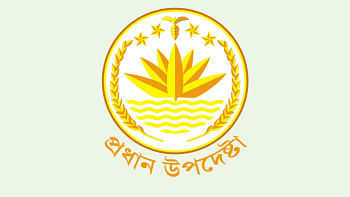Why are private employees' savings being taxed?

The government is committed to increasing tax revenue by 0.5 percent to 0.7 percent of GDP annually under the $4.7 billion IMF loan programme over three years. Perhaps in a desperate bid to boost tax collection, the government has imposed a 27.5 percent corporate tax on income from private provident funds – a critical social security vehicle for private sector employees – from this fiscal year. To note, provident funds of government employees have been exempted from this tax.
Unlike public sector retirees, private sector employees do not get pensions. So, throughout their working years, they deposit some money in a provident fund each month from their salary. The private employer also contributes an equal sum to the fund. The money accumulated in the provident fund is usually invested in order to increase its size, so that it can serve as social security for private sector employees after retirement.
In the previous Income-tax Ordinance, 1984, provident fund trusts were not required to submit their tax returns, and income generated by a provident fund (PF) trust as a separate legal entity was not taxable. But, as section 166(2) of the newly introduced Income Tax Act 2023 has only exempted government provident and pension funds from submitting tax returns, a private PF trust will have to submit a tax return under the new act. Plus, as reported by The Business Standard, the tax rate on such a fund has been set to be the same as a company's corporate tax rate (that is, 30 percent). This can be reduced to 27.5 percent if certain conditions are fulfilled. Either way, the government is now able to take away 27.5 percent to 30 percent annually from the modest savings of private sector employees.
Moreover, taxing gratuity funds may also indirectly affect private sector employees as the increase in tax will increase gratuity fund expenditure for private companies, thereby discouraging many companies from setting up gratuity funds at all.
Before this, although the provident funds and gratuity funds in both public and private sectors did not have to pay income tax directly, since 2016, a tax of 5 to 10 percent has been paid on profits of funds depending on the type of investment. As the new income tax law imposes a corporate tax of at least 27.5 percent on the income of private trusts and funds, the retirement benefits of private sector employees will decrease significantly. In the past, if an employee of a private company deposited Tk 5,000 into the provident fund each month – and the company also contributed Tk 5,000 – that translated to Tk 10,000 a month and Tk 1,20,000 annually. And if the fund was deposited in a bank with 10 percent interest, then the interest income was Tk 12,000 per year while Tk 1,200 was deducted as source tax on this income, at the rate of 10 percent. With the new 27.5 percent tax, the government is to take Tk 3,300. That is, the private sector employee will now lose an additional Tk 2,100 per year of his/her retirement benefits.
The question is: how reasonable is the imposition of corporate tax on the income of social security funds like provident funds? After all, the beneficiary of this provident fund is an ordinary private employee, not a corporate organisation. Moreover, imposing tax on private PF trusts while exempting government funds is plainly discriminatory and against the fundamental principle of our constitution, which gives the state the responsibility to ensure equality of opportunity for all citizens and equitable distribution of wealth among citizens. Not only that, the government pays a 13 percent interest for the provident fund of government employees, which is the highest interest rate in the market.
Public sector employees are already ahead of private sector employees in terms of social security due to government pension benefits. And due to employer participation being non-compulsory, even the newly introduced universal pension scheme is not equal to the pension structure of government employees. Thus, only taxing private provident funds will further exacerbate this disparity.
Additionally, our tax revenue collection is not up to mark compared to the size of the economy. Bangladesh's current tax-to-GDP ratio stands at 7.9 percent, miles behind the ideal benchmark of 15 percent. But what is the reason behind such a low tax-GDP ratio? Is it because the common people pay less taxes? Or is the government unable (or unwilling) to collect enough taxes from the super-rich? Data show that most taxes collected by the government come from the pockets of common people, through indirect taxes such as customs duties and VAT. In developed countries, 70-80 percent of the total tax revenue is collected via direct taxes. But in Bangladesh, at least 65 to 67 percent of tax is collected from average citizens through indirect taxes.
Even direct taxation is heavier on the general population than on the rich
According to the Center for Policy Dialogue, if the government stopped the rich from evading taxes, it could collect an additional Tk 55,800 crore to Tk 292,500 crore annually, which is eight times the amount allocated to the social security programme and two times the allocation for the health sector. But instead, the government is increasing the tax burden of the common people. Even direct taxation is heavier on the general population than on the rich, and the latest example of this is the imposition of the 27.50 percent tax on the income of private provident funds.
A progressive tax involves a tax rate that increases as taxable income increases. It imposes a lower tax rate on low-income earners and a higher tax rate on those with a higher income. The income tax system in Bangladesh is already regressive. But the imposition of corporate tax on the income of private provident funds will make the tax system even more regressive and further increase inequality. Such a discriminatory tax on private sector employees' life savings should be abolished urgently.
Kallol Mustafa is an engineer and writer who focuses on power, energy, environment and development economics.
Views expressed in this article are the author's own.
Follow The Daily Star Opinion on Facebook for the latest opinions, commentaries and analyses by experts and professionals. To contribute your article or letter to The Daily Star Opinion, see our guidelines for submission.

 For all latest news, follow The Daily Star's Google News channel.
For all latest news, follow The Daily Star's Google News channel. 











Comments